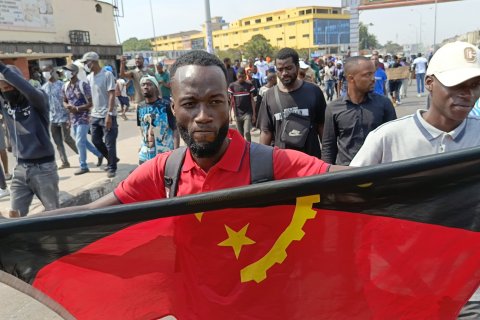In a commentary on the 17th US-Africa Business Summit, held in June in Luanda, sent to clients and accessed by Lusa, analysts say that "the power struggle between the US and China in Africa has gained momentum after Beijing announced its intention to remove all tariffs on 53 African countries."
"This rivalry between the US and China has elevated the geopolitical importance of Southern Africa, placing the region at the forefront of the global competition for natural resources," write analysts from the African department of this British consultancy.
The US, on the other hand, "is increasing its presence through the Minerals Security Partnership and has directed investment funding toward infrastructure with the aim of balancing Chinese dominance, such as in the Lobito corridor," analysts say.
The major difference in the two economic powers' operations in Africa, they argue, lies in their approach: "China has gained a significant foothold through long-term investments in roads, railways, and energy infrastructure," while the US stance "is more focused and transactional."
In this sense, the Lobito corridor "is an attractive alternative to current transportation routes, which force truck drivers to navigate potholed roads and wait days in lines, sometimes exceeding 50 kilometers, to clear customs."
The Lobito corridor, which connects the port of Lobito in Benguela to the Democratic Republic of the Congo (DRC), is operated by a European consortium comprised of Trafigura, Mota-Engil, and Vecturis, under a 30-year concession with the Angolan government. It is considered a strategic hub for transporting minerals, facilitating exports, and promoting agribusiness.
The infrastructure includes the port of Lobito, the Benguela Railway (CFB), and logistics terminals along the more than 1300-kilometer railway line, which connects the Angolan coast to the Democratic Republic of the Congo, passing through the provinces of Benguela, Huambo, Bié, Moxico, and Moxico-Leste.
In June, on the sidelines of the US-Africa summit, the Angolan Sovereign Wealth Fund (FSDEA) and Israeli businessman Haim Taib announced the launch of a platform to mobilize 1 billion dollars for projects in the Lobito Corridor, with an initial investment of 100 million dollars.
The Lobito Corridor Development and Investment Platform (LCID Platform) will operate as an independent framework to accelerate investments in sectors considered catalysts for development, including agriculture, infrastructure, health, industry, education, and digital inclusion.
"With a projected reduction in transportation costs of up to 40 percent and an increase in intra-SADC [Southern African Development Community] trade of up to 40 percent, the Lobito Corridor will become one of Africa's most strategic economic arteries," said Armando Manuel, president of the FSDEA, quoted in a company statement in late June.
The businessman also revealed that advanced negotiations are underway for Zambia to join the platform, expanding the initiative's reach beyond the borders of Angola and the Democratic Republic of the Congo, to eventually connect the Mozambican port of Beira, on the Indian Ocean, to the Atlantic, crossing Africa from east to west.







